 Recently I was at a junior golf tournament and witnessed some teenage girls completing their last putts on the last green and when they finished putting and had walked off the green I noticed that one of them had tears in her eyes and running down her cheeks and the other two girls had swollen eyes as if they had cried or were ready to cry. Later on in the clubhouse I noticed that the girl that had been crying when walking from the green was still crying 40 minutes after handing in her card. I wondered to myself what could be so bad or wrong about her golf game that it could make her so upset and unhappy for so long. As it turns out amongst other things her father was putting a lot of pressure on her to perform better in tournaments, and her current level of skill was simply not up to his level of expectation, no matter all the practice she has done and the money he has paid for lessons, travel, etc. And there lies one of the big problems—not just in junior golf, but also in elite level golf; people are working hard to get better, paying for lessons, and they need to ask themselves -- are they getting a good rate of improvement for all the effort and money they put into the game? Have you heard of the term “Return on Investment?” Also called your ROI it is a performance measurement tool in business used to calculate the effectiveness of an investment, or to compare the effectiveness of a number of different types of investments. Compared to many popular sports it is also a relatively expensive sport to play—especially if you want to be very good at it. So let’s take a look at your fiancial investment in golf improvement over 12 months and work out your return on investment. Add up the amount you spend on the following...
2. Your Return on Your Investment = Amount of Strokes Improvement over 12 Months Minus The Cost of Your Improvement (R.O.I) _________________ For example; lets say that your total investment in improving your golf game for 12 months was $5,000.00 and you improved 2 strokes within the 12 month period. $5000 divided by 2 strokes = 2,500 dollars per stroke improvement. This would be your ROI from your investment of time, effort and money. 3. So Your Strokes Improvement for Every Dollar Spent = I have improved __________ strokes in the past 12 months and each stroke was worth $ _______________ So how's your investment in golf coming along? Are you improving your golf score average at a reasonable rate compared to your investment of time, effort and money? If you are not, then why not? To calculate your ROI, the benefit (which is your return) on your investment is divided by the cost of your investment and the result is expressed as a percentage or a ratio. So basically in golf terms it would be the level of reward, improvement or benefit you receive from the effort (investment) you put into practicing, playing and improving your golf. As you know golf is a complex game to play that requires a significant investment of time, effort and financial resources for you to keep improving. The bottom line is that golf improvement is measured by strokes improved on your score average over a defined period of time. So in the following example work out your total strokes improvement for a 12 month period minus your financial investment and work out how much each stroke of improvement has cost you. 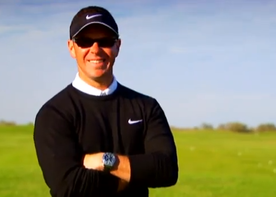 Expert Canadian Golf Instructor Sean Foley Expert Canadian Golf Instructor Sean Foley Why You Should Engage Expert Advice Let’s face it, improving yourself in anything you do is quite often an expensive (but necessary) activity, and obtaining expert advice along the way to help you improve your golf is never cheap, so you cannot waste one single ounce of your available time on poor investments. Notice I said expert advice? Yes that’s right, you must make sure that the advice and coaching you are receiving is from experts. Here’s what Wikipedia say’s an expert is. “An expert is someone widely recognized as a reliable source of technique or skill whose faculty for judging or deciding rightly, justly, or wisely is accorded authority and status by peers or the public in a specific well-distinguished domain. An expert, more generally, is a person with extensive knowledge or ability based on research, experience, or occupation and in a particular area of study.” Source: http://en.wikipedia.org/wiki/Expert If you desire to become an exceptional amateur or professional golfer then going to anyone other than an expert golf consultant for advice on game improvement is likely to drain you not only financially, but also emotionally and physically. This is what David and I would call a bad investment. This means that your gains from your investment of time, effort and money are far less than the amount you spent. This following is an example we have heard many times of a bad investment As we travel around South East Asia we often talk to frustrated parents of junior golfers and hear their stories of where they invested significant sums of money on people purporting to be experts (often sitting behind a big name brand, system/method), and sadly for many it costs them a lot of money and a lot of their time to find out that they are not experts. Not to mention that these junior golfers are quite often very frustrated with their game and their lack of improvement, and some go so far as to give the game up. What a sad state of affairs. You think I’m exaggerating? I’m not. 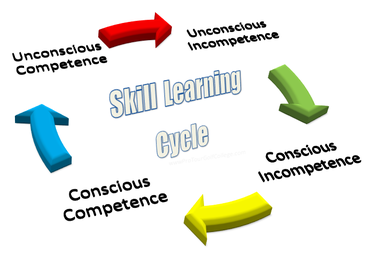 So the bottom line is that you can receive the best information from the best experts in their field, but if you don’t apply that information the way you need to then improvement (lower scores) will be slow or potentially non-existent. So do yourself a favor and seek out expert consultants in the areas you need to improve, and dedicate the time to performing the routines and rituals exactly as they show you. Also understand that golf is a game where as you get better the rate of progress slows down greatly, and it is at this 'struggle stage' that many good golfers never cross the threshold and become great golfers. Ultimately you have to decide what type of golfer you wish to be. You might want to become a competent amateur golfer who performs well at club level and district level. You might want to become a dominant junior golfer who aims for a university scholarship. You might want to become a top class amateur golfer who represents your country or you might want to become a professional golfer and you make your income from playing in professional tournaments. 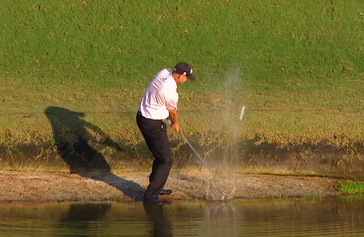 Golf is a game of mistakes and imperfect shots Golf is a game of mistakes and imperfect shots Why Reward Never Equals Effort in Golf Golf is a high mistake sport where you will fail many times in your efforts to become excellent at playing—especially in tournaments. No two golf shots are ever the same, and when you bring countless environmental variables into the process it makes the game challenging, most of the time. So it is never a short term focus on improvement; but always a long term process of gradual improvement. So remember that Reward is Not Equal to Effort in Golf. It doesn’t matter whether you are aged 11, 21 or 51 you need a basic plan for improvement that is highly relevant to your needs, and is also flexible enough to change as you change and this is where the principle of specificity comes in. Specificity, Huh? Specificity relates to how your body changes, adapts and evolves as you practice and play golf. Specifically, you are practicing and developing skills in such a way that your body is being shaped to the specific demands of golf, and ideally this shaping should be aimed at playing competitively in tournaments if you want to be an elite amateur or professional golfer. If you are a higher handicap (serious) golfer specificity could relate to improvement in the shape of your golf swing, meaning that as you change and adapt to new information and practice it you are shaping your swing so you can hit specific types of shots such as, driving the ball successfully from the tee or possibly hitting a shot with a specific type of curvature. So the rate of your improvement is related to (amongst other things) the quality and frequency of the golf instruction you receive, the amount of golf shots you hit or golf strokes you perform, the regularity of how often you hit them, and the intensity of your focus on each stroke, or your level of engagement. Your improvement is also related to where you are in your skill learning cycle. In other words, you need to understand that all your skill learning goes from a level of conscious-but not yet competent to a level of unconscious and competent. What does this mean? Well, it simply means that when you receive information from your instructor/coach/consultant, the information must be translated into a dependable motion, and for you to get to this stage of unconscious competent learning (where you don’t have to think about how you do it) you will need to spend a lot of time doing it correctly under supervision and without. 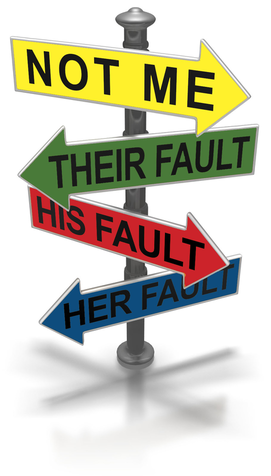 So Who’s Responsible for Your Improvement? Well, the experts you hire are responsible, of course, but you are too. You see it is very possible that you are taking good advice from expert consultant/s, but you are not applying it the way you need to—or the way they shared it with you, and consequently you might discover that you are not improving at a rate that is even close to your expectations. Of course ‘the experts’ should be providing you with some sort of homework in the form of methods, systems, exercises, drills, routines or rituals. This information should be measurable and achievable with consistent practice. Some golf instructors provide a video analysis of your golf swing describing how it looks and shapes up against a famous golfer. We are not talking about this type of feedback, as this is probably more appropriate for a once a month average golfer who hardly plays, and almost never practices. This golfer is not a serious golfer, and so this type of feedback might be OK for them, but it is certainly not for you. Ideally you should be provided with a specific golf development plan that shows you where you are currently and the process or strategy you will need to generate improvement. This does not have to be a comprehensive plan, but it should give you an understanding of how you can generate improvement, and approximately how much time and money is needed to improve your skills. Also you should be under no illusion that the gains or rewards from your golf practice are going to be equal to the effort you put into it. Sometimes they are and sometimes they are not. So what is the gain? The gain is not so much knowledge as it is competency, or more specifically, golf skill competency that translates into lower golf scores. You are investing your time with experts to increase your golf skill competency first and foremost, and then you take those skills into tournaments and learn how to develop them into lower scores. 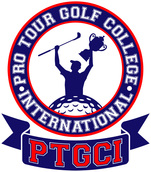 Perth and Jakarta Perth and Jakarta Whichever way you look at it you have chosen a game that is very challenging to play well, so you need the advice and help from experts, and you need to be prepared for a lifelong journey of learning, discovery, setbacks and heartache and be completely dedicated to your long-term improvement. Decide today what you want to achieve from your golf and go to work building a bridge from where you are currently to where you wish to go. Take your time, be patient and really apply yourself to your practice, be especially patient with the learning process and in the days, weeks, months and years ahead you will discover that your investment of time, effort and money showed you the way to the other side of golf improvement. Lawrie Montague and David Milne - Pro Tour Golf College The Professional Golf Tour Training College
kennet
31/5/2015 04:25:02 am
very good
Lawrence Montague
31/5/2015 11:03:03 am
Glad you enjoyed it and thanks for your comments.
Bree
31/5/2015 04:38:57 am
Solid article, Its important to always keep an eye on your ROI, after all pro golf is a business aswell
Lawrence Montague
31/5/2015 11:04:48 am
Thanks for sharing your comments Bree. Comments are closed.
|
Archives
June 2019
|
Proudly Supported By
Copyright © 2011 - 2018 Pro Tour Golf College
Website Managed By Golf Performance Media
All Rights Reserved
Website Managed By Golf Performance Media
All Rights Reserved



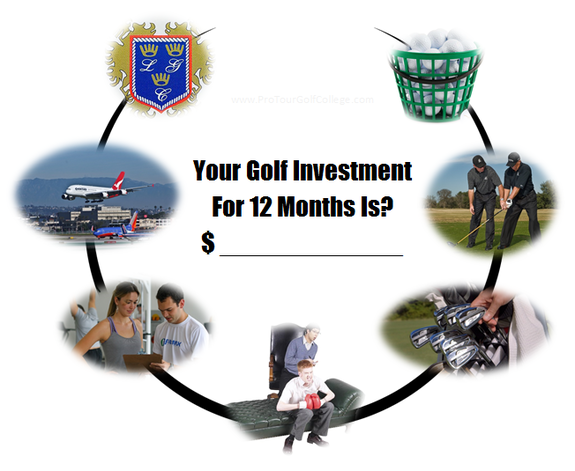
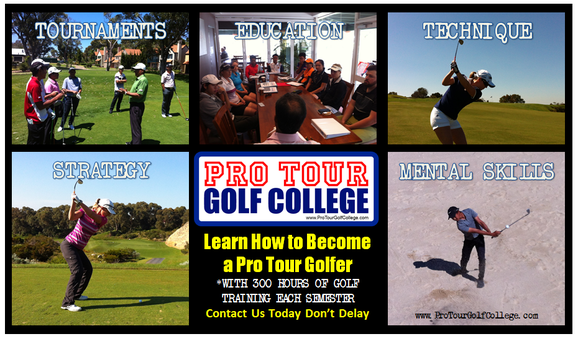
 RSS Feed
RSS Feed



